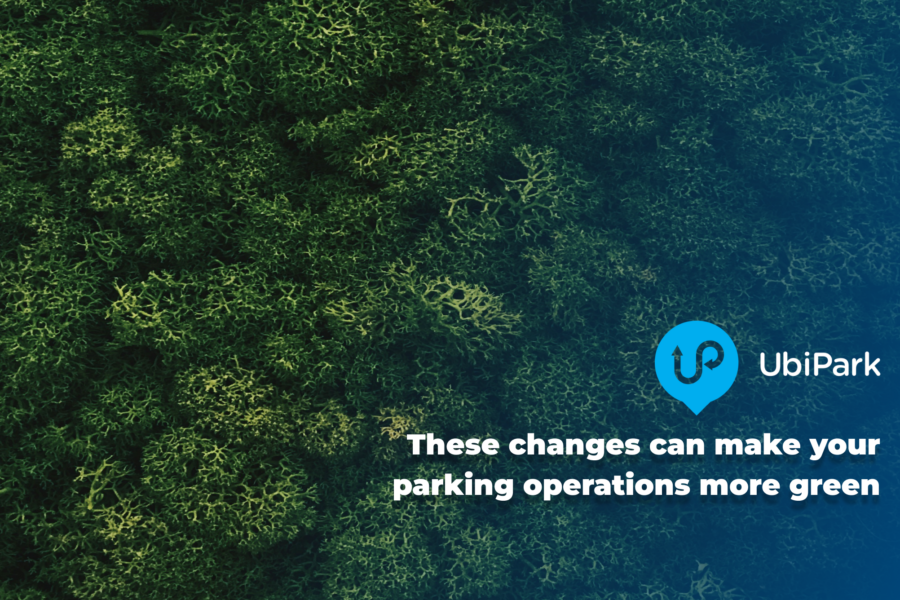These changes can make your parking operations more green

July 11, 2024
Parking operators play a crucial role in urban infrastructure, and their operations can significantly impact environmental sustainability. A question many long-standing parking operators are currently facing, however, is what can they do to make their operations more green, especially as parking lots are often renowned as emission hubs. Some strategies the UbiPark team recommends include:
Adopting Solar Power
Integrating solar panels into parking facilities is a powerful step towards sustainability. Solar-powered parking lots utilise renewable energy to meet lighting and operational needs, reducing reliance on non-renewable resources. Solar panels can also lead to long-term cost savings by lowering electricity bills and contributing to a cleaner environment.
Installing Electric Vehicle Charging Stations
With the rise of electric vehicles (EVs), providing charging infrastructure is crucial for parking operators looking to attract environmentally conscious customers. Installing EV charging stations not only supports the growing EV market but also encourages sustainable transportation choices. Operators can collaborate with EV manufacturers or energy providers to install and maintain these stations effectively.
Promoting Carpooling and Shared Mobility
Encouraging carpooling and shared mobility options can reduce the number of vehicles in parking lots, alleviating congestion and emissions. Parking operators can partner with employers to offer incentives, such as discounted parking rates or priority parking, for carpoolers. Additionally, designating specific spaces for carpool vehicles can further incentivise this eco-friendly practice.
Optimising Traffic Flow and Management
Efficient traffic flow management minimises idling and reduces emissions within parking facilities. Implementing digital signage, smart parking guidance systems and real-time occupancy sensors can help drivers quickly locate available spaces, reducing search times and congestion. Additionally, optimising entry and exit points through technology such as License Plate Recognition scanners, can improve traffic flow and reduce carbon emissions associated with vehicle movement.
Implementing Reservation Systems
Introducing reservation systems for parking spaces not only enhances convenience for users but also optimises space utilisation. By allowing customers to book parking spots in advance, operators can minimise idle time and congestion, reducing emissions from circling vehicles. Advanced reservation systems can integrate with digital platforms, providing real-time availability updates and promoting efficient use of resources.
Optimising Space Utilization
Maximising the use of existing parking spaces through smart management techniques is crucial for reducing environmental impact. Operators can employ dynamic pricing strategies based on demand, encouraging off-peak usage and balancing occupancy levels throughout the day. Utilising data analytics and occupancy sensors helps operators better understand usage patterns, optimise space allocation, and reduce the need for additional infrastructure.
Conclusion
The UbiPark team is committed to helping parking operators and businesses achieve their parking goals, including reduced emissions. If you’re interested in making a positive change to your parking facility, you can contact us at any time.




